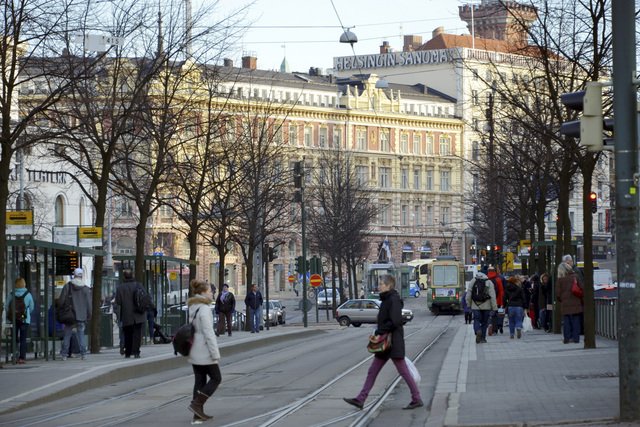Christmas and New Year are getting closer. Christmas is a time of wishes and New Year is all about starting something new. This winter those Christmas wishes and New Year promises are becoming true: in Finland we´re starting the very first Basic Income experiment to help non-standard workers and to simplify the basic security safety net. The timing is couldn´t be better – the forthcoming year Finland also celebrates it´s 100 years of independence.
What is basic income?
A basic income is an income unconditionally paid to all on an individual basis, without any means tests or employment requirements. It may sound a bit weird but it’s an idea that is gaining a foothold in many places around the world. It’s bubbling under from Oakland to Finland via Canada, France and the Netherlands. It’s also an idea that has attracted support across the political spectrum.
And guess what? We are actually going to experiment using it. In 2017 it will really happen in Finland: the year is not just about celebrating our 100 years of independence but also starting the very first basic income experiment. Why? What? How? Here are some answers.
Why?
In Finland we have been talking about basic income since the 1970s. In almost every decade the reason behind the discussion has been the state of working life and the need to reform our social welfare system. And so it is now. Our social welfare system was built decades ago. During that time our society has changed, and it keeps on changing. The “gigeconomy” is gaining ground and non-standard employment is becoming the new standard. Our current social security system has loopholes: if one’s employment or social security status changes, it may cause problems and uncertainty. This doesn’t match very well with the idea of gig jobs.
The growing gig economy and the fear of automation are behind the discussions about basic income all over the world.
What?
What happens next then? The basic income experiment will start in 2017 and will last two years. Now, critical readers may remind me that it is not actually basic income that we are doing but just an experiment of it. Correct, but we are taking the first step towards it. In this first experiment a focus group of 2,000 unemployed job seekers between the ages of 25 and 58 will be chosen randomly. The “basic income” will be 600 euros a month and it will replace the minimum benefits. Perhaps the most significant thing is that that the experiment will be a sample study, the first study in Finland.
But we do still need more focus groups. We need more experiments. And here comes the great news: our government is willing to widen the experiment in 2018.
How?
How is it then that the government is willing to experiment with basic income? Well, I think having political momentum is important: our new government was ready to make the leap. The Centre Party – also our prime minister’s party – has supported the idea of basic income for quite a while now. But there was also influence from our previous government: the reforms that were needed didn’t happen. At the same time, the national debt has continued to rise while the number of people in work has not. So the pressure was huge and some reforms were definitely needed.
And here we are, on the edge of a huge social welfare reform. And despite the fact that this experiment is not a universal basic income experiment, it’s still worthwhile. Too often our politicians are too afraid to make wholesale reforms for fear of failure. Sometimes we need to take baby steps first; sometimes we even need to fail before getting back on our feet. Now we finally have the courage!
